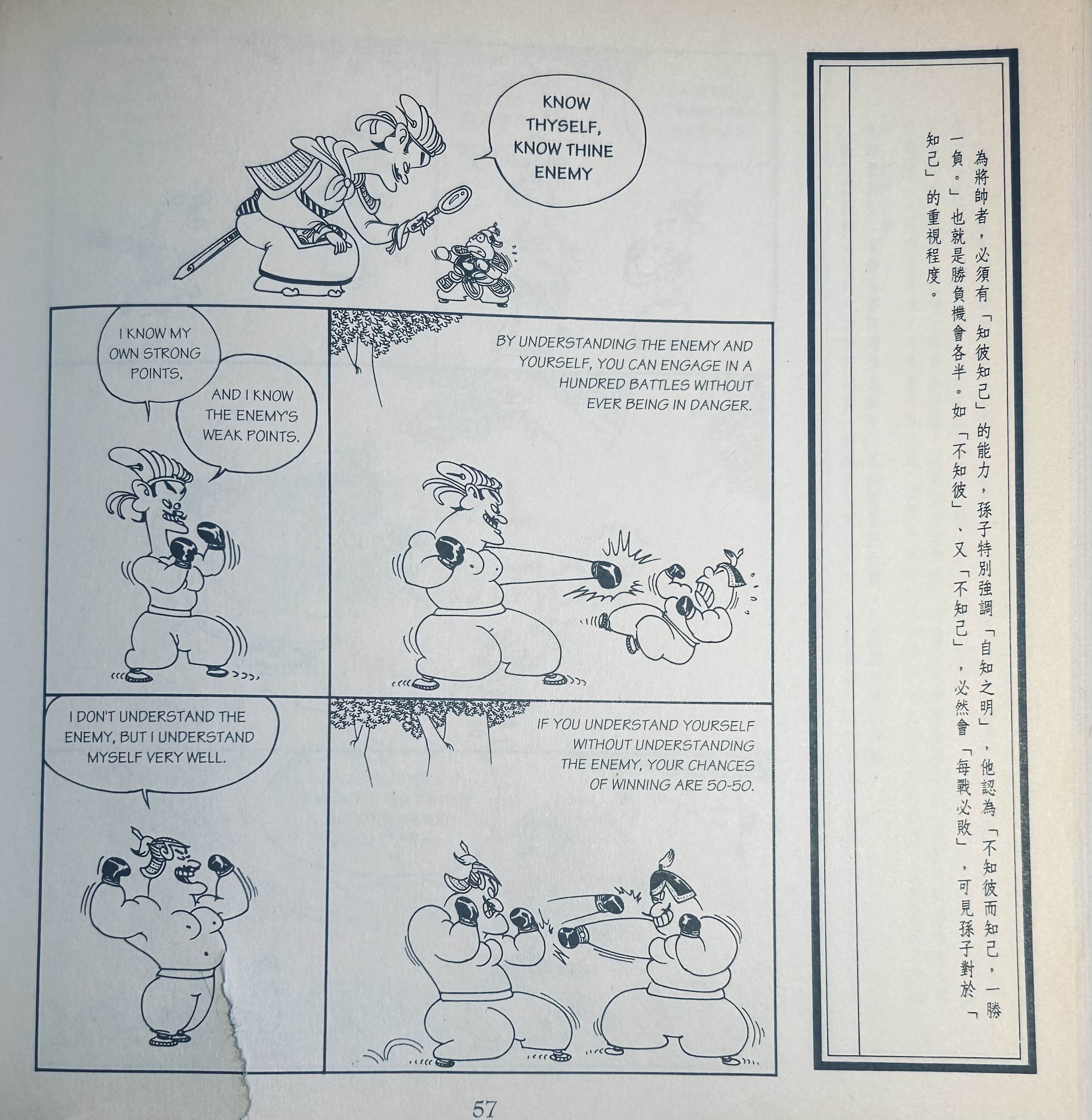The Art of War
My dad had these books by an artist named Tsai Chih Chung. He made comics about different books like "The Art of War", some different zen teachings. That was my first introduction to Sun Tzu's "The Art of War" at 8 years old.

I've since had the fortune of finding a translated copy in a random value village. Below are some of the quotes and my interpretations of them.
Chapter 1: Appraisals
There are five indicators to assess situations:
- Tao
- Heaven
- Earth
- The general
- The method
Tao is the "why," it's "what causes the people to have the same purpose of their superior," which I interpret as ranging from patriotism, to sales commissions (incentives), to belief in a startup's mission. Last, I'd like to add the perspective of an individual and say you can use this in self-improvement contexts - it's the "why you pursue growth"; your internal compass like "I want to become a more fit person so that I can realize the full potential of my body."
Heaven is the weather, the environment irrespective of your situation. If we were not doing battle, these would still be present. An example could be the economy.
Earth is the battleground; the unique circumstances of your situation.
The general is something that comes from war. I've seen interpretations where they say the general is the CEO - the single individual who takes in the information from advisors and the situation at hand and makes the ultimate decision. However, I'd generalize (ha) this to being the knowledgeable people you have around you and the information you can receive. That's simply because, once again, I'm thinking of this from an individual view and not an organization view - I'm my own general and not appointing another person to be my general.
The method/discipline/doctrine. is your system: the framework that you use when going about things. In military contexts it's moreso the way you organize your army and I suppose that applies to companies too. But I think simply generalizing it to a mental framework that you use can apply in an individual context, like morning rituals, journalling, and building routine habits to work towards the goals we set.
The book then mentioned something about Shih. I'm not sure what it means by shih is. The description was, "governing the balance according to the advantages"
The military is a Tao of deception— Thus when able, manifest inability. When active, manifest inactivity. When near, manifest as far. When far, manifest as near. Thus when he seeks advantages, lure him. When he is in chaos, take him. When he is substantial, prepare against him. When he is strong, avoid him. When he is wrathful, harass him. Attack where he is unprepared. Emerge where he does not expect it. These are the victories of the military lineage. They cannot be transmitted in advance.
The best quote IMO was that last part, "they cannot be transmitted in advance."
It's important to realize that every situation is unique and there are always factors at play, invisible or visible, that make today different from yesterday.
You can learn from people who have won their battles in the past, but you can't expect to have a playbook for every single situation.
Chapter 2: Doing Battle
Main idea: don't prolong your battles. It'll bring down your strength.
One skilled at employing the military does not have a second registering of conscripts nor a third loading of grain.
They're saying, someone skilled at the military doesn't need to get another fresh soldiers. And then another fresh load of food. That takes up a ton of resources. But if you use your enemies' food then you're simultaneously strengthening yourself and weakening them.
Moreover, if you capture your enemies, be nice to them, and then you'll increase your strength with their people too.
The Art of War, The Denma Translation